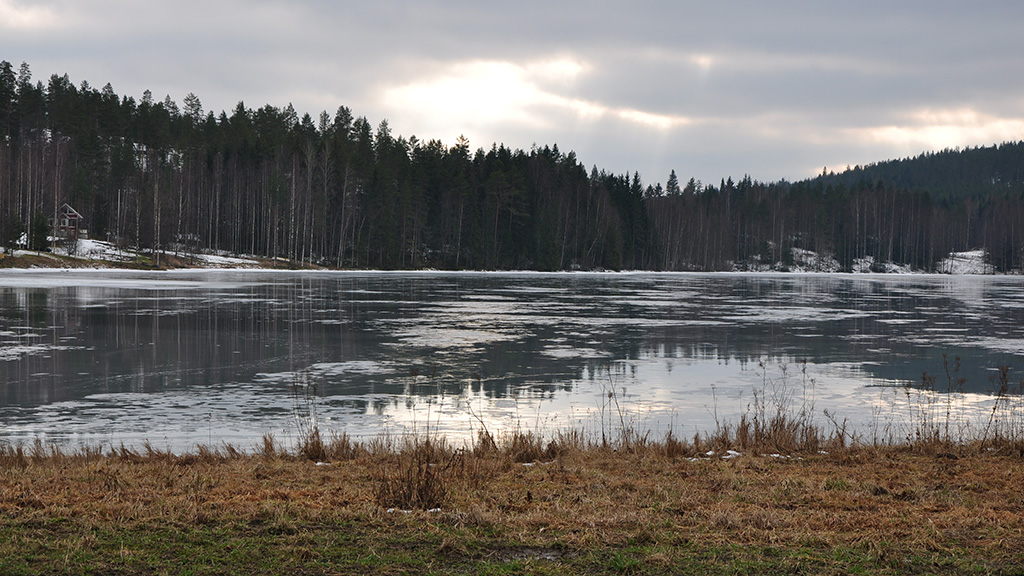Europe’s Extreme Summers Are Getting Longer — and the Trend Could Accelerate
New research reveals that Europe’s trend towards longer, more intense summers echoes conditions from 6,000 years ago, when natural forces stretched the warm season to nearly 200 days. Today, those same mechanisms are being intensified by global warming, potentially adding up to 40 extra days to the summer season by 2100. This change could significantly reshape agriculture, ecosystems, and daily life.

To uncover how unusual today’s changes really are, an international group of researchers turned to a surprising archive of climate history: ancient layers of mud buried at the bottom of European lakes.
These seasonally layered sediments, or “natural climate calendars”, record how summers and winters have shifted over the past 10,000 years. In Finland, the study used the sediment sequence from Nautajärvi in Orivesi.
The results show that around 6,000 years ago, Europe saw the longest summers in millennia, lasting nearly 200 days each year—a duration comparable to the most extreme modern warm seasons. Back then, shifts in atmospheric circulation triggered by a natural exceptional Arctic warming, played a major role. Now, those same processes are being amplified by human-caused climate change, driving Europe towards a future of even longer, more intense summers.
The research was published in the journal Nature Communications. The international group of researchers was led by Dr. Celia Martin-Puertas from Royal Holloway University of London. From Finland, Professor Antti Ojala from Geological Survey of Finland GTK and University of Turku, participated in the research.
Longer summers are caused by the weakening of the latitudinal temperature gradient
At the heart of the research lies a key piece of atmospheric physics: the latitudinal temperature gradient—the difference in temperature between the Arctic and the equator. This gradient helps drive the powerful winds from the Atlantic Ocean into Europe, which steer weather systems across the continent.
As the Arctic warms nearly four times faster than the global average, that temperature difference weakens, causing the air currents to slow and meander. The result? More persistent summer weather patterns—meaning heatwaves linger longer and the season itself stretches out.
“When the temperature contrast between the Arctic and mid-latitudes weakens, Europe’s summer effectively expands,” explains Professor Antti Ojala from GTK. ″Our findings show that this isn’t just a modern phenomenon—it’s a recurring feature of Earth’s climate system. But what’s different now is the speed and intensity of change, and that isn’t just natural processes causing this, it is also human activity.”
The study shows, through comparison with climate simulations of the past, that a 1°C decrease in the temperature gradient between the equator and the North Pole could lengthen summer by about six days.
Change increases risks and pressure to adapt
If greenhouse gas emissions continue at current levels, Europe could see up to 42 extra summer days by 2100, simply from the natural response to Arctic warming.
On top of that, changes in industrial aerosol emissions and internal feedback loops of the Earth’s climate system could also contribute to reshaping Europe’s seasonal rhythm in ways that scientists say could have profound consequences for ecosystems, water resources, agriculture, and public health.
Such a shift could transform much of Europe’s environment and economy. Longer growing seasons might initially benefit some crops and northern regions, but extreme heat and water shortages could quickly outweigh those gains. Ecosystems adapted to cooler, wetter conditions may struggle, and the risks of wildfires, droughts, and heat-related health crises are expected to rise.
For the scientists behind the study, the ancient lake record is more than just a window into the past.
“The sediments show us that Earth’s climate has always responded to shifts in the atmosphere,” says Ojala. “But today, we’re pushing those boundaries faster toward a more unpredictable future.”
The findings underscore how deeply connected Europe’s weather is to global climate dynamics and how understanding the past can help us navigate the challenges of a rapidly changing planet.
Further information
Research article in Nature Communications: Consistent response of European summers to the latitudinal temperature gradient over the Holocen
Antti Ojala, Research Professor
Geological Survey of Finland GTK
antti.ojala@gtk.fi
tel. +358 29 503 2566
